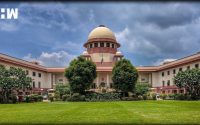$100 Website Offer
Get your personal website + domain for just $100.
Limited Time Offer!
Claim Your Website NowSupreme Court, govt in fresh face-off on judges’ appointments
Source:- hindustantimes.com
The collegium, which comprises the five senior-most judges of the Supreme Court led by the Chief Justice of India, reiterated its April recommendation that Jharkhand high court chief justice Aniruddha Bose and Gauhati chief justice AS Bopanna be appointed to the apex court.
For the second time in 12 months, the Supreme Court collegium has asserted itself against the executive on matters of judicial appointments and insisted on the elevation to the top court of two high court judges it has recommended, and proposed two more names, including the first Scheduled Caste nominee to the bench in a decade.
The collegium, which comprises the five senior-most judges of the Supreme Court led by the Chief Justice of India, reiterated its April recommendation that Jharkhand high court chief justice Aniruddha Bose and Gauhati chief justice AS Bopanna be appointed to the apex court.
The collegium, which met on Wednesday, recommended two more names, of Bombay high court judge BR Gavai and Himachal Pradesh high court chief justice Surya Kant, for elevation as Supreme Court judges, according to a statement posted on the Supreme Court website.
The reiteration of its recommendation of justices Bose and Bopanna came after the department of justice, under the ministry of law and justice, sent back the recommendations to the collegium for its reconsideration. It is believed that the ministry’s decision may have been driven by the fact that the two high courts to which the judges were first named (their parent high courts), Karnataka and Calcutta, are already well represented in the apex court.
Brushing aside government’s objection to the names, the collegium said in a resolution that it had kept in mind the twin parameters of seniority among judges and merit while
recommending the names.
“… the Collegium resolves to reiterate the afore-mentioned recommendation dated 12th April, 2019, especially since nothing adverse regarding competence, conduct or integrity of Mr. Justices (1) Aniruddha Bose, and (2) A.S. Bopanna, has been pointed out,” a resolution passed on Wednesday said.
A law ministry official did not respond to requests for a comment.
This is the second time in a year that the government and judiciary have locked horns over the appointment of judges. In April 2018, the government objected to the appointment of then Uttarakhand high court chief justice KM Joseph as a Supreme Court judge.
But then too, the collegium stood its ground and the appointment of justice Joseph came through, albeit after a delay.
Once the Collegium reiterates its recommendation, the government has to accept it, although there is no prescribed time-frame within which this needs to be done.
Clearing the names of justices Gavai and Kant for appointment, the collegium said: “While recommending the names of Mr. Justice Bhushan Ramkrishna Gavai and Mr. Justice Surya Kant, the Collegium has taken into consideration combined seniority on all-India basis of Chief Justices and senior puisne Judges of High Courts, apart from their competence, conduct and integrity. The Collegium has also kept in mind the desirability of giving due representation on the Bench of the Supreme Court, as far as possible, to all the High Courts as well as to all sections of the society including those belonging to SC/ST/OBC categories, women and minorities.“
With the recommendation of justice Gavai to the Supreme Court, the top court has a Scheduled Caste judge on the bench after a gap of a decade. ST and OBC are short for Scheduled Tribe and Other Backward Class, respectively.
Clearing the air that the recommendation of justice Gavai — he happens to be fourth with respect to seniority among judges from the Bombay high court — the collegium said: “His
recommendation, in no way, is to be misconstrued to mean that three senior-most Judges from Bombay High Court (two of whom are serving as chief justices) are less suitable than Mr. Justice Gavai.”
Senior advocate Vikas Singh said, “The legal position on the issue is very clear. The government can only object to it once and if the collegium reasserts its recommendation, the government has to go by the recommendation. And this position is very important for the independence of the judiciary.”


